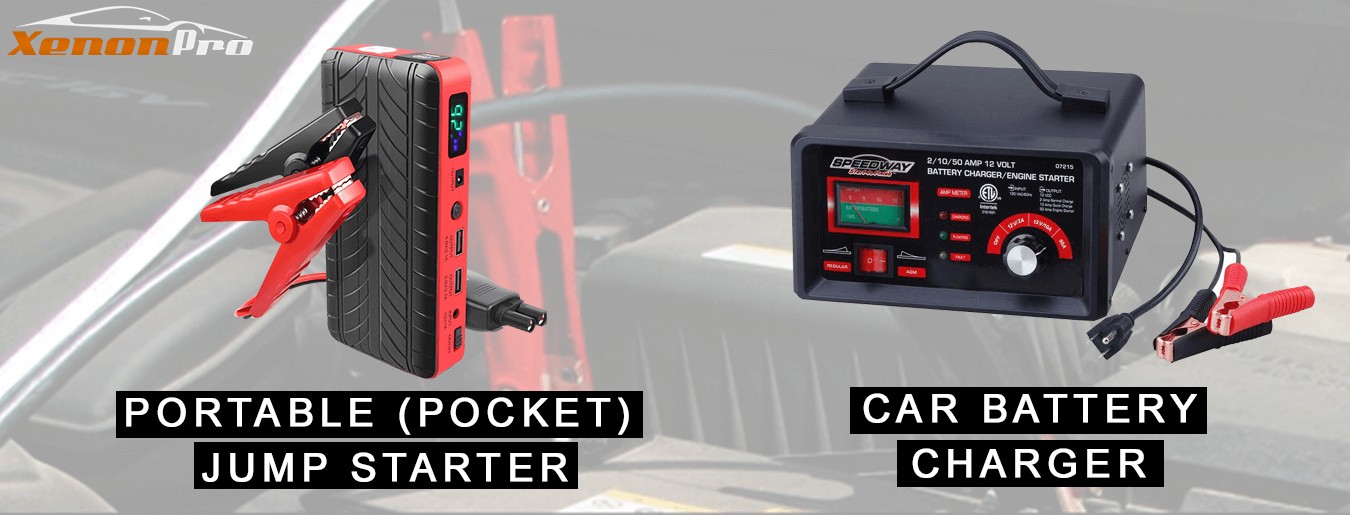A dead car battery can be a major inconvenience, especially during harsh weather. Understanding the differences between Car Battery Chargers and jump starters is crucial for addressing this common issue. This guide provides a detailed overview of car battery chargers, their types, usage, and answers to frequently asked questions.
 Car Battery Charge vs Portable Jump Starter
Car Battery Charge vs Portable Jump Starter
Car Battery Chargers vs. Jump Starters: Key Differences
While both car battery chargers and jump starters can help with a dead battery, they serve distinct purposes. Jump starters provide a quick burst of power to start your car immediately, ideal for emergencies. Car battery chargers, on the other hand, replenish a battery’s charge over time, perfect for maintenance and dealing with a weak battery.
| Feature | Car Battery Charger | Jump Starter |
|---|---|---|
| Purpose | Charging | Jump Starting |
| Best For | Maintenance | Emergencies |
| Charge Time | Hours | Instant |
| Power Source | AC Outlet | Internal Battery |
| Portability | Often Portable | Highly Portable |
| Multi-Functionality | Limited | Often Multi-Functional (USB charging, flashlight) |
Understanding Car Battery Chargers in Detail
Car battery chargers function similarly to chargers for cellphones or laptops, but with specific adaptations for car batteries. They convert the standard 120-volt AC household current into the 12-volt DC current required by car batteries. Specialized cables, similar to jumper cables, connect the charger to the battery terminals.
Types of Car Battery Chargers: Amps and Voltage
Car battery chargers come in various amp-hour (Ah) ratings, indicating their charging speed. Higher amp ratings mean faster charging. A 10-amp charger will charge a battery faster than a 2-amp charger. They also come in different voltage ratings to match the specific voltage of your car battery (typically 12 volts). Using an incorrect voltage can damage your battery.
When to Use a Car Battery Charger
Car battery chargers are best suited for:
- Maintaining Battery Health: Regularly charging a battery, especially in stored vehicles, prevents sulfation and extends its lifespan.
- Recharging a Weak Battery: If your battery consistently struggles to hold a charge, a charger can help restore it. However, if the battery is failing, replacement is often necessary.
Choosing the Right Car Battery Charger
Consider these factors when selecting a charger:
- Amp Rating: Choose a higher amp rating for faster charging, but ensure it’s compatible with your battery.
- Voltage: Match the charger’s voltage to your battery’s voltage (usually 12V).
- Automatic Shutoff: This feature prevents overcharging and damage to the battery.
- Maintenance Mode: This feature helps keep the battery fully charged during storage.
Conclusion
Car battery chargers are essential tools for car owners. Understanding their function and choosing the right type can significantly extend the life of your car battery and provide a reliable solution for dealing with a weak or dead battery when you have time to recharge it. While a jump starter is the go-to solution for immediate starting needs, a car battery charger plays a crucial role in long-term battery maintenance and health. Investing in a quality car battery charger is a wise decision for any car owner.
